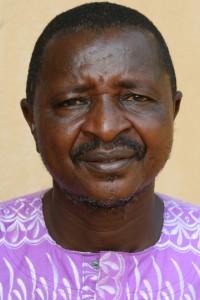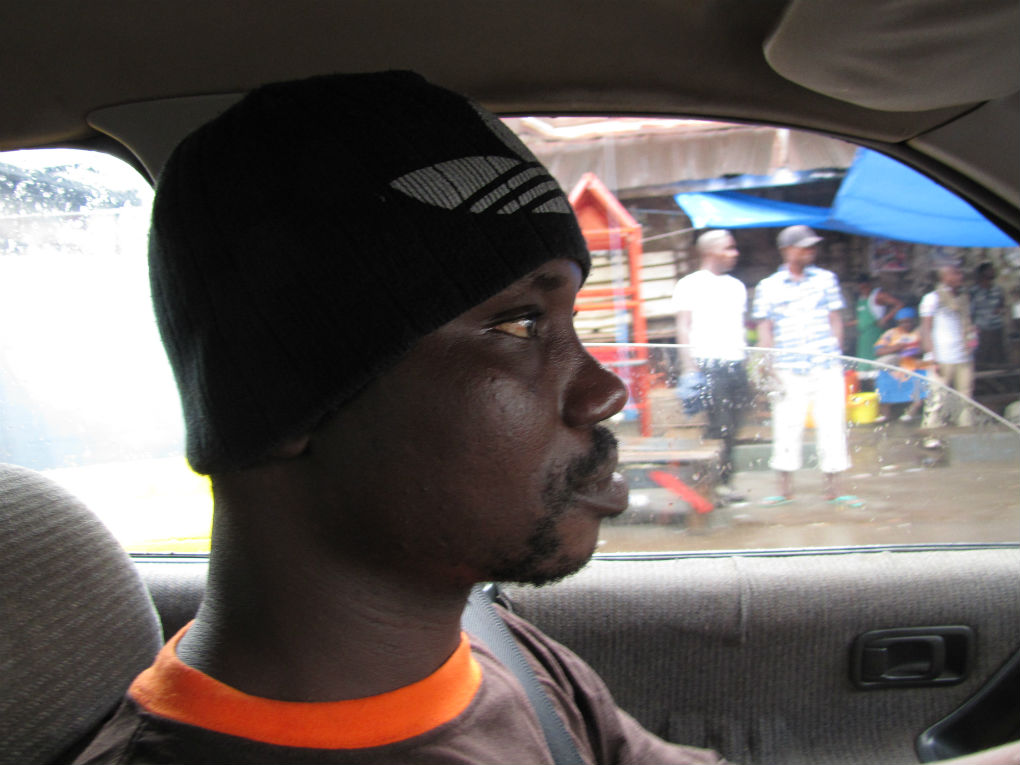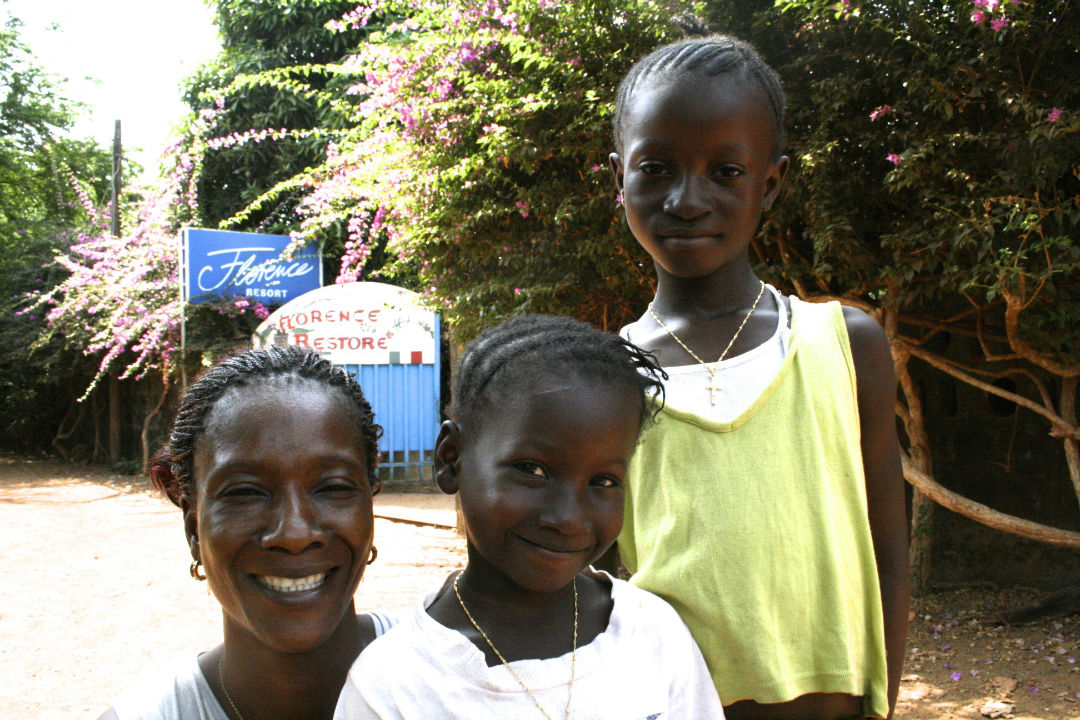In March of this year I was in an airport lounge in Brussels, getting caught up on world news after my most recent trip to Sierra Leone, when I first read that ebola had entered the country through neighbouring Guinea.
I’ve logged many calls with my Sierra Leonean friends since then. I am fully aware of the dysfunctional health care system, and of the traditional ways of washing and wrapping and keaning over bodies. This is a country ripe for a virus like ebola.
David, 50ish, lives in Sumbuya. During the war David and his family fled to the bush–avoiding rebels, scrabbling together whatever they could find to eat. I will never forget our first  meeting. “I have been asked by the paramount chief to go wherever you go in the chiefdom,” he said. I’ve returned many times since then–and never been assigned a minder–I’m free to wander about. David has become my confidant and best friend in Sierra Leone.
meeting. “I have been asked by the paramount chief to go wherever you go in the chiefdom,” he said. I’ve returned many times since then–and never been assigned a minder–I’m free to wander about. David has become my confidant and best friend in Sierra Leone.
I always ask about ebola and, thankfully, his answer remains the same. “Thanks to the living God,” he says, “for now we have been spared.” David continues to attend Mass daily in the tiny Catholic church in Sumbuya. His beliefs are a mix of Catholicism and traditional spirituality–a mix that is shared by many in the country. He has lived through a war of unspeakable brutality and now he and his family live with the fear of ebola. Still, he thanks God and takes each day as a gift. I love the man.
And Momodu, a young man of 30, his parents killed by rebels, who for the last 15 years has looked after his sister and 2 brothers. Momodu has faithfully driven me across the country many times. Momodu acts like a man who has my back. “Do not worry Mr. Michael–I will get you there!” he likes to say. And he does.
 I asked Momodu how it is for him. “There is no work for me,” he says. “No one wants to get in a car with others. There is ebola in Freetown and no one wants to use the hospital or go to a government clinic. It is bad, very, very bad. But do not worry Mr. Michael–please say hello to your entire family.”
I asked Momodu how it is for him. “There is no work for me,” he says. “No one wants to get in a car with others. There is ebola in Freetown and no one wants to use the hospital or go to a government clinic. It is bad, very, very bad. But do not worry Mr. Michael–please say hello to your entire family.”
And Veronica, mother of 4 girls who lives on the outskirts of Freetown. Veronica who walked to Liberia during the war with her daughter on her back. Veronica, who now supports her family by selling solar lights, is learning the hard way. She tried selling many of the lights by offering credit. Not a good idea with customers who have nothing to give–but this is Veronica. “I will repay you, bit by bit,” she says. “The ebola makes it very difficult,” she adds, her voice trailing into despair.
 Yesterday Veronica told me of a family of six–six bodies, in a house. She says the government sends a team to take blood but they go away leaving the bodies in the house, sometimes for days. “Maybe they will come back in a few days to collect the body. It is so bad the family carry bodies into the street.”
Yesterday Veronica told me of a family of six–six bodies, in a house. She says the government sends a team to take blood but they go away leaving the bodies in the house, sometimes for days. “Maybe they will come back in a few days to collect the body. It is so bad the family carry bodies into the street.”
Today I called my friend Mohamed, a health care worker in the city of Bo. If you’ve followed my blog you will have read about a morning I spent with Mohamed a couple of years ago. I visited his clinic in the remote village of Momajo (phonetic sp). It was an experience I won’t forget–within an hour of my arrival this man with 3 years of ‘medical training’ post high school managed to sew up a farmer’s axe-mangled foot, treat two infants for malaria and try to save, unsuccessfully, an 18 year old woman who bled to death after giving birth. The closest hospital was two hours away and there was no fuel for the ambulance that day.
At the time, I couldn’t imagine things getting worse in Sierra Leone. Recently I asked Mohamed what he will do if an ebola patient comes to him? “How can we treat people we cannot touch?” he asks. “I must think of my family, the healthcare workers are all dying. Everywhere we are dying.” In the most terrifying of ways, this is what makes ebola different–the inability to touch. Benjamin Hale, in a recent article in Slate.com put this very well:‘Every mechanism we have for caring—touching, holding, feeding, playing, warming, comforting, caressing—every mechanism that we use to bind us to our families and our neighbors, is preyed upon by Ebola.’
And so it is with my friends. I call them weekly, they ask after my family, and they wait.
Thank you for making the faces and the voices real. I can hardly stomach the undue panic in North America while our friends face real risks every day.
Thank you Paul–I’d never thought things in Sierra Leone could get worse than the last few years…they have, and it is unimaginable
Thanks, Michael. You have a God-given talent for writing, helped by your empathy and obvious love for these people. Makes me way to read MHINMO for the third time.
Neil Carey
Thanks so much Neil..I appreciate it…
I cannot begin to fathom the despair the people of West Africa must feel amidst the wrath of the ebola crisis. It seems incredible that Sierra Leoneans have continued to suffer for so many years, through war, disease and the neglect of the global community. Thank you for your work in Sierra Leone and for your wonderful novel, which I am presently reading. Your words capture the stark reality of the suffering that so many people in developing countries undergo on a daily basis. You have brought back so many heart-wrenching feelings, so many fond memories of the warmth and resilience of the extended family in the African culture!
Thanks Marcel for your thoughtful, and very kind, comments. I’ve met a few CUSO volunteers circa early 1970s–such a wonderful group!